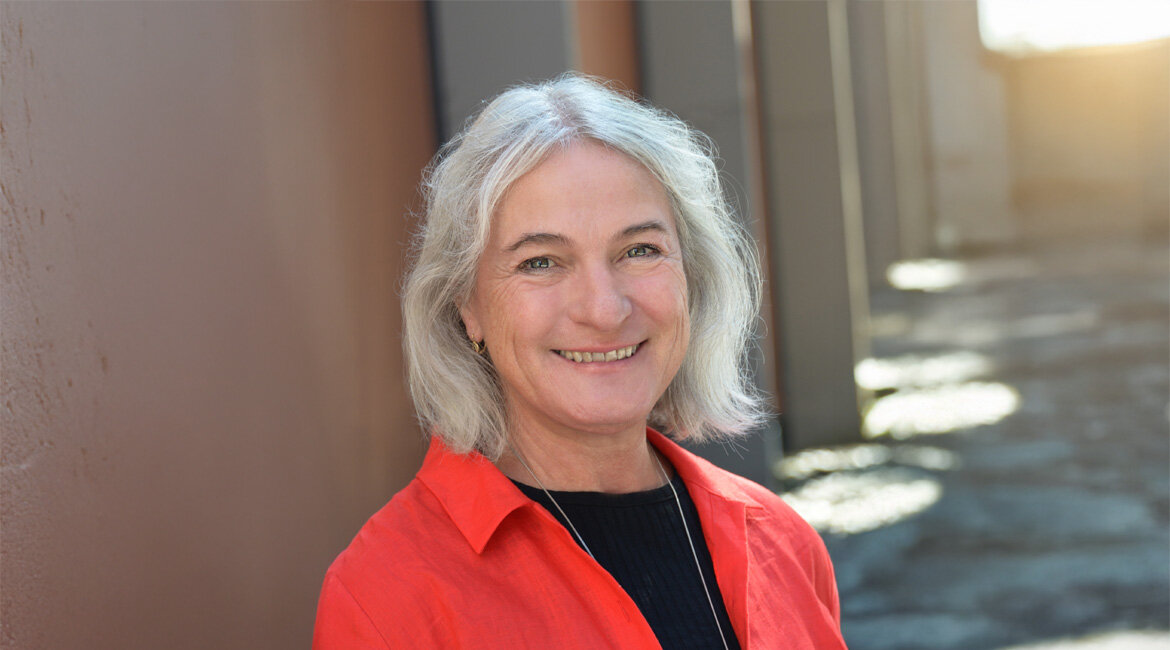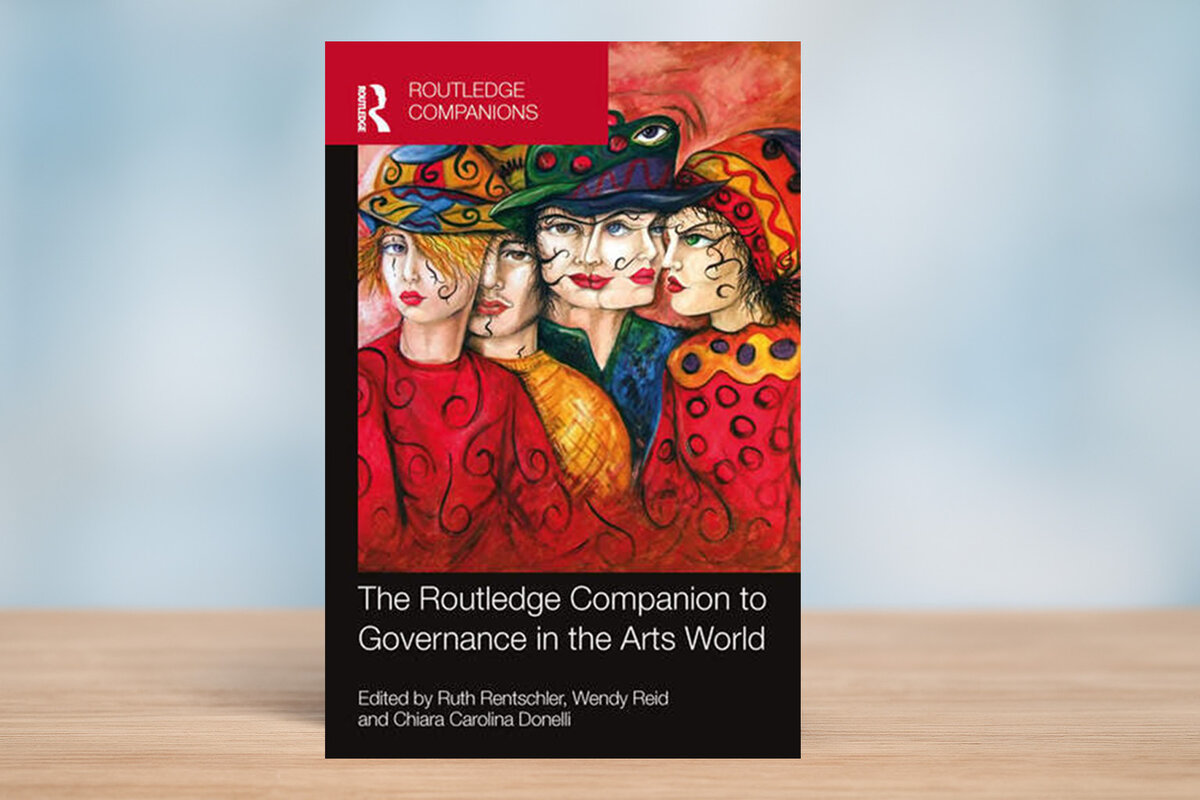Helping to shape culture: When civil society gets loud
- 03.06.2025
- General

Prof. (FH) Dr. Verena Teissl has published an article in the international reference book The Routledge Companion to Governance in the Arts World.
Who decides how culture is made? In an international specialist article, Professor (FH) Dr. Verena Teissl shows how committed groups behind the scenes have a say, help shape - and even initiate political change. A look at an often overlooked piece of cultural history.
How does change occur in the cultural sector - and what role do civil society actors play in this? Prof. (FH) Dr. Verena Teissl, Professor of Cultural Management and Cultural Studies at the FH Kufstein Tirol, has investigated this question together with the Canadian academic Wendy Reid. Their joint contribution Cultural Governance as Field Governance is part of the new reference book The Routledge Companion to Governance in the Arts World, which brings together experts from around the world on the subject of art and (cultural policy) governance.
THREE SECTORS, MANY LOGICS
The article focuses on an area that has received little academic attention in German-speaking countries to date: civil society interest groups in the arts and culture sector. As a third sector alongside the market and the state, they follow their own logic - and, according to Teissl, make an essential contribution to cultural diversity.
CIVIL SOCIETY SETS OTHER DISCOURSES, WAS AND IS OFTEN A PIONEER FOR SOCIALLY CRITICAL ISSUES
Professor (FH) Dr. Verena Teissl
“Civil society sets other discourses, was and is often a pioneer for socially critical issues,” says the professor. In their article, Teissl and Reid use historical and current examples from Austria to show how the independent scene has organized itself into interest groups in order to actively shape the framework conditions - for example through strategic public relations work, political negotiation work or targeted alliances.
This is not only about better conditions for artists and cultural professionals, but also about a deeper claim: to help shape political culture itself. Interest groups act as collective actors who want to strengthen democratic processes through their work, initiate institutional change and help decide how governance is understood and implemented - beyond symbolic participation.
Research meets practice
The topic is not just an academic one for Teissl: she herself worked in the cultural sector for over 20 years, including for the Viennale. Her research is based on interviews with current CEO Managing Directors of civil society interest groups as well as intensive archival work with materials from the KUPF, the Cultural Platform of Upper Austria, which was founded in 1986 as the first formalized representation.
These insights make it clear: Today's structures are the result of long-term processes and historical upheavals, particularly in the 1970s and 1980s. Under the government of Bruno Kreisky, a new understanding of culture emerged, which subsequently led to the recognition and establishment of emerging civil society cultural initiatives.
From the arena to Instagram
The study identifies six strategies that interest groups in Austria are still using to successfully shape the field - in other words, to influence the rules of the game in the cultural sector. This is not only about political participation, but also about questions of generational change and social security. According to Teissl, the COVID-19 pandemic in particular has made it clear how precarious many structures are, but also what contribution cultural workers make to society.
“It takes more than idealism,” says the researcher. “Fair pay and structural safeguards are not extras, but the basis for sustainable cultural engagement.”
International relevance
The fact that the contribution has been published in the Routledge Companion to Cultural Governance - part of a renowned international anthology series that sheds light on central topics in a wide range of fields of specialization - is a special distinction. The book analyzes governance in the arts and cultural sector on several levels - from individual leaders to Chairmen of the Board to political frameworks - and addresses current challenges such as postcolonialism, diversity and toxic leadership.

Teissl emphasizes: “The Austrian way of representing interests can be a role model - for example in consistent political participation. This should not be confused with symbolic participation, as degree programs from other countries have critically investigated. Genuine co-determination needs to be binding, and important negotiation results should be enshrined in law wherever possible, just as the cultural promotion laws once established the sector.
Cultural commitment remains political
For Teissl, it is clear that research can - and must - contribute to making the social value of art and culture visible. In cooperation with the Center for Nonprofit Organizations and Social Impact at WU Vienna, she is currently working on impact research projects that aim to make the influence of cultural offerings on social participation, empathy and intercultural understanding measurable.
"Art and culture are not a luxury. They are an expression of social identity, a reflection of conflicts - and sometimes also a driver for change."
Links:
- The Routledge Companion to Governance in the Arts World | Routledge / Taylor & Francis Group
